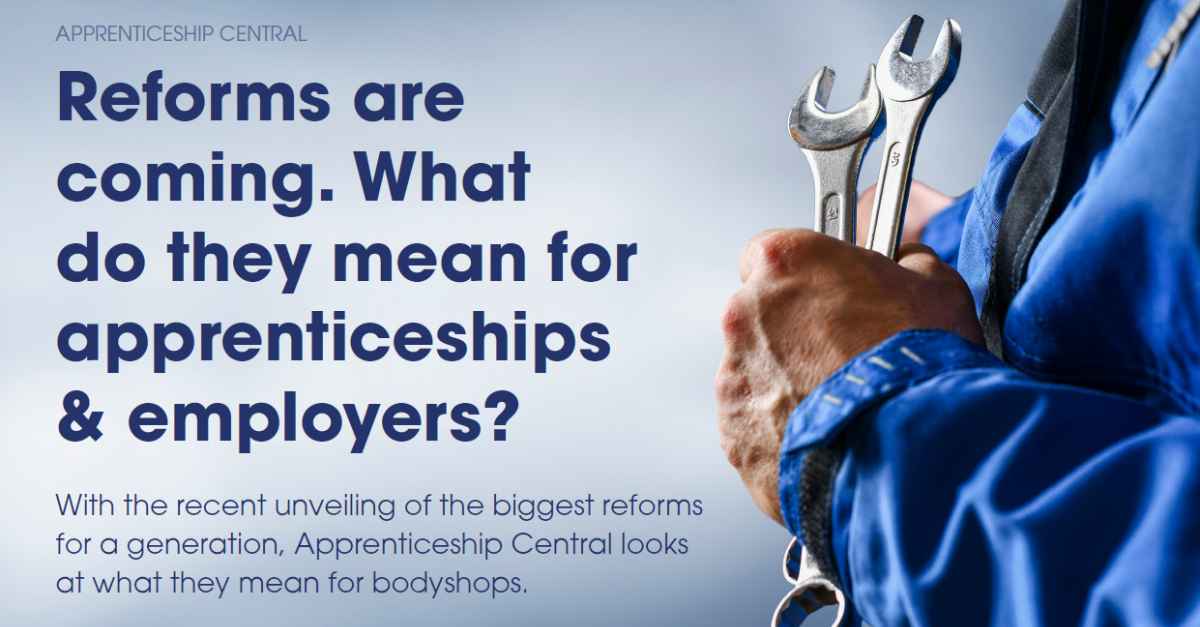Apprenticeship Central has published a white paper highlighting the reforms taking place within UK apprenticeships, and considering what they mean for automotive employers.
Work and Pensions Secretary Liz Kendall initiated the reforms last November with the publication of the ‘Get Britain Working’ white paper.
This introduced what has been described it as ‘the biggest reforms for a generation.’
Key among them is the overhaul of the outdated Jobcentres to create a National Jobs and Careers Service, with the new service emphasising local engagement and skills matching.
The government has also pledged that ‘every 18-to-21-year old in England will have access to an apprenticeship, quality training and education opportunities under a new Youth Guarantee Scheme.’
This is being supported by a new funding scheme, with the Apprenticeship Levy being replaced by a more flexible Growth and Skills Levy, which comes with a £40m investment.
Further, in a bid to empower local communities, eight new youth ‘trailblazer’ areas will be set up across the country, backed by £45m in funding. This initiative will be complimented by £115m allocated to regions to deliver the Connect to Work programme, allowing councils the resources to develop their own, tailored plans.
Eleanor Baker Barnes, Director of Apprenticeship Central, said, “There can be few bigger priorities than ensuring young people get the education and careers they need, but the government doesn’t create jobs – businesses do.”
“The integration of local businesses into these reforms is critical for their success. Bodyshops have suffered from skills shortages for too long and these reforms offer a chance to close that gap by developing stronger connections between businesses, schools, and local communities. Businesses know and understand their local areas.
The Youth Guarantee Scheme means bodyshops now have an opportunity to attract and retain the brightest and best young people, instead of losing them to far flung universities. This will not only help businesses address current skills shortages but also build a sustainable, skilled workforce for the future.”
Reforms-are-coming.-What-do-they-mean-for-apprentices-and-employers















